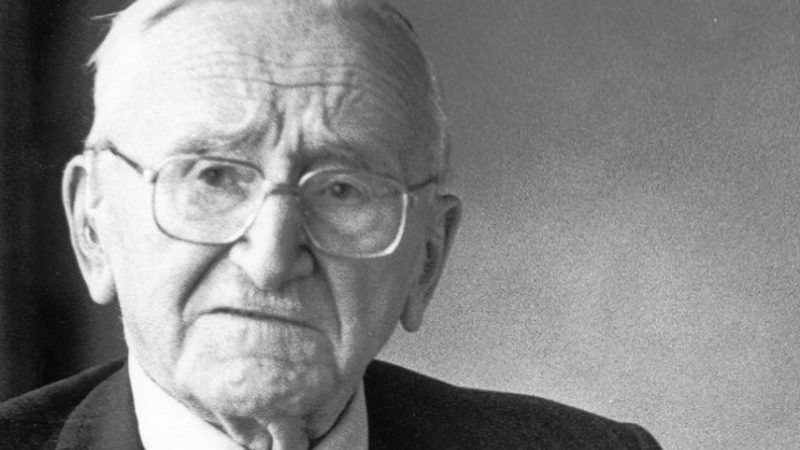Most Libertarians Don't Understand Friedrich Hayek, Says Peter Boettke: Podcast
In a bold new book about Hayek, the George Mason economist says "too much time and effort has been put into repackaging and marketing a fixed doctrine of eternal truths."

With populism on the rise, capitalism under attack, and socialism back in vogue, the work of Austrian economist Friedrich Hayek (1899–1992) is more relevant than ever. Hayek started his career as a wunderkind professor, joining the faculty of the London School of Economics in his early 30s, and was a central figure in the debates that consumed the profession during the Great Depression. He would go on to spend most of his seven-decade-long career as an outsider, his work diverging from the mainstream following the Keynesian revolution of the 1930s and '40s. Eventually the world circled back to Hayek's ideas, and he was one of two recipients of the 1974 Nobel Memorial Prize in Economics.
Today, Hayek is best known for his enduring insights on emergent order, for his critique of central planning, and for his argument that all knowledge in society is decentralized and that a modern economy thus relies on the coordinating role of prices and private property. In his final book, The Fatal Conceit, Hayek wrote that "the curious task of economics is to demonstrate to men how little they really know about what they imagine they can design."
Hayek's enormous body of work is the subject of a new book by the George Mason University economist Peter Boettke, which takes a deep dive into Hayek's writing and serves as a rousing call for a serious rethinking of libertarian and classical liberal thought.
"Liberalism is in need of renewal," writes Boettke, who started his career as an expert on post-communist economics in the former Soviet Union. "Too much time and effort has been put into repackaging and marketing a fixed doctrine of eternal truths, rather than rethinking and evolving to meet the new challenges." Even Hayek, Boettke notes, made mistakes late in his career, such as his kind words for the Chilean dictator Augusto Pinochet. Hayek's great legacy is his understanding of economics and liberal political theory as a process for creating a world in which individuals and society could become more free, equal, and prosperous over time.
In this Reason Podcast, I talk with Boettke about the historical and intellectual context of Hayek's thought, the influence of Hayek's mentor Ludwig von Mises on his work, and how libertarians can follow Hayek's dictum that "we must make the building of a free society once more an intellectual adventure, a deed of courage."
Subscribe, rate, and review our podcast at iTunes. Listen at SoundCloud below:
Audio production by Ian Keyser.
Don't miss a single Reason Podcast! (Archive here.)
